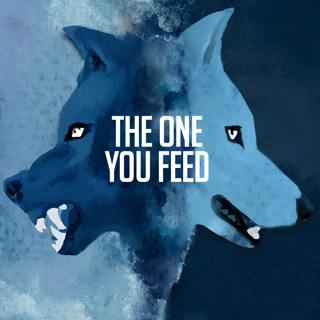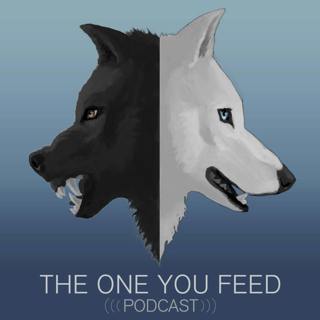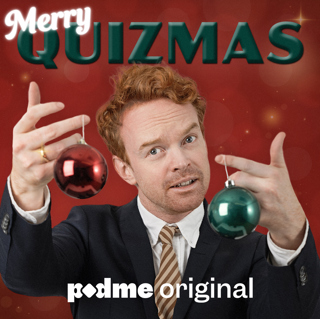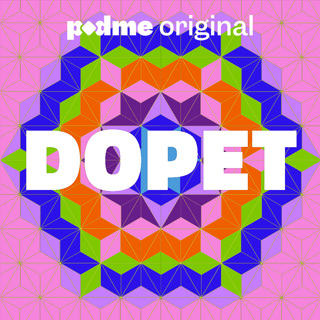
From Avoidance to Acceptance: A New Way to Live with Anxiety with Kelly Wilson
In this episode, Kelly Wilson explains how to move from avoidance to acceptance: a new way to live with anxiety. He delves into how our vulnerabilities show us what matters to us, and that the goal isn’t to win a war inside. It’s to keep coming back to the next honest action that moves you towards what matters. That is at the core of acceptance and commitment therapy. Not chasing perfect feelings, but choosing the next right move towards your values, again and again. Exciting News!!!Coming in March, 2026, my new book, How a Little Becomes a Lot: The Art of Small Changes for a More Meaningful Life is now available for pre-orders! Key Takeaways: Exploration of psychological struggles, particularly anxiety, and their impact on life. Introduction to Acceptance and Commitment Therapy (ACT) and its core principles. Discussion of the six core processes of ACT: present moment awareness, cognitive defusion, acceptance, values, committed action, and self as context. Examination of the relationship between vulnerability and personal growth. Critique of traditional diagnostic labels and their limitations in understanding psychological experiences. Emphasis on the importance of values in guiding meaningful actions and decisions. Insights into the nature of human suffering and the commonality of psychological pain. The concept of redemption and its role in personal development and therapy. Reframing commitment as a moment-to-moment process rather than a rigid promise. Encouragement of compassion and understanding in the face of psychological challenges. If you enjoyed this conversation with Kelly Wilson, check out these other episodes: Steven C. Hayes Russ Harris (Part 1) Russ Harris (Part 2) For full show notes, click here! Connect with the show: Follow us on YouTube: @TheOneYouFeedPod Subscribe on Apple Podcasts or Spotify Follow us on Instagram By purchasing products and/or services from our sponsors, you are helping to support The One You Feed and we greatly appreciate it. Thank you! This episode is sponsored by: Uncommon Goods has something for everyone – you’ll find thousands of new gift ideas that you won’t find anywhere else, and you’ll be supporting artists and small, independent businesses. To get 15% off your next gift, go to UNCOMMONGOODS.com/FEED LinkedIn: Post your job for free at linkedin.com/1youfeed. Terms and conditions apply. Persona Nutrition delivers science-backed, personalized vitamin packs that make daily wellness simple and convenient. In just minutes, you get a plan tailored to your health goals. No clutter, no guesswork. Just grab-and-go packs designed by experts. Go to PersonaNutrition.com/FEED today to take the free assessment and get your personalized daily vitamin packs for an exclusive offer — get 40% off your first order. Grow Therapy – Whatever challenges you’re facing, Grow Therapy is here to help. Sessions average about $21 with insurance, and some pay as little as $0, depending on their plan. (Availability and coverage vary by state and insurance plans. Visit growtherapy.com/feed today! AGZ – Start taking your sleep seriously with AGZ. Head to drinkag1.com/feed to get a FREE Welcome Kit with the flavor of your choice that includes a 30 day supply of AGZ and a FREE frother. Learn more about your ad choices. Visit megaphone.fm/adchoices
31 Okt 202550min

Beyond the Buzzwords: How to Talk About Mental Health Without Losing Its Meaning with Joe Nucci
In this episode, Joe Nucci explores what it means to go beyond the buzzwords and how to talk about mental health without losing its meaning. He explains how mental health language has become less useful as it’s gained popularity, and how clinical terms meant for specific purposes have drifted into everyday speech until they describe everything, and therefore, nothing. The words we use create the world we see, and once you start viewing yourself through a diagnostic lens, it can be hard to see in any other way. One of the most powerful takeaways from this conversation is that the value of a psychological term lies not only in its accuracy, but in its usefulness, and sometimes the language we use builds a cage instead of offering clarity. Exciting News!!! Coming in March, 2026, my new book, How a Little Becomes a Lot: The Art of Small Changes for a More Meaningful Life is now available for pre-orders! Key Takeaways: The popularization of mental health language and concepts. The phenomenon of “psychobabble” and its implications. The concept of “concept creep” in mental health terminology. The importance of accurate mental health diagnoses and their clinical usefulness. The balance between clinical accuracy and practical application in mental health discussions. The complexities of people pleasing and its underlying motivations. The overuse and misapplication of the term “trauma” in contemporary discourse. The distinction between normal emotional responses and clinical disorders. The role of language in shaping perceptions of mental health. The need for nuanced, context-sensitive approaches to mental health treatment and understanding. For full show notes, click here! Connect with the show: Follow us on YouTube: @TheOneYouFeedPod Subscribe on Apple Podcasts or Spotify Follow us on Instagram If you enjoyed this conversation with Joe Nucci, check out these other episodes: How to Harness Brain Energy for Mental Health with Dr. Chris Palmer Why We Need to Rethink Mental Health with Eric Maisel Insights on Mental Health and Resilience with Andrew Solomon By purchasing products and/or services from our sponsors, you are helping to support The One You Feed and we greatly appreciate it. Thank you! This episode is sponsored by: Uncommon Goods has something for everyone – you’ll find thousands of new gift ideas that you won’t find anywhere else, and you’ll be supporting artists and small, independent businesses. To get 15% off your next gift, go to UNCOMMONGOODS.com/FEED LinkedIn: Post your job for free at linkedin.com/1youfeed. Terms and conditions apply. Persona Nutrition delivers science-backed, personalized vitamin packs that make daily wellness simple and convenient. In just minutes, you get a plan tailored to your health goals. No clutter, no guesswork. Just grab-and-go packs designed by experts. Go to PersonaNutrition.com/FEED today to take the free assessment and get your personalized daily vitamin packs for an exclusive offer — get 40% off your first order. Grow Therapy – Whatever challenges you’re facing, Grow Therapy is here to help. Sessions average about $21 with insurance, and some pay as little as $0, depending on their plan. (Availability and coverage vary by state and insurance plans. Visit growtherapy.com/feed today! AGZ – Start taking your sleep seriously with AGZ. Head to drinkag1.com/feed to get a FREE Welcome Kit with the flavor of your choice that includes a 30 day supply of AGZ and a FREE frother. Smalls – Smalls cat food is protein-packed recipes made with preservative-free ingredients you’d find in your fridge… and it’s delivered right to your door. For a limited time, get 60% off your first order, plus free shipping, when you head to Smalls.com/FEED! No more picking between random brands at the store. Smalls has the right food to satisfy any cat’s cravings. Learn more about your ad choices. Visit megaphone.fm/adchoices
28 Okt 20251h 4min

Are Your Desires Really Yours? How to Recognize and Reclaim What You Truly Want with Luke Burgis
In this episode, Luke Burgis explores the question, “Are your desires really yours?” and how to recognize and reclaim what you truly want. He discusses how to tell the difference between “thin desires (fleeting, imitated wants) and “thick desires” (the deeper longings that bring lasting fulfillment), and why discerning between the two can change the direction of your life. Luke also shares practices for uncovering your true hierarchy of values, creating alignment between what you want and who you want to be. Explore how to pivot from “I don’t want to” to “I do want to, I just don’t feel like it” and how to feed the desires that lead to meaning instead of comparison or regret. Exciting News!!! Coming in March, 2026, my new book, How a Little Becomes a Lot: The Art of Small Changes for a More Meaningful Life is now available for pre-orders! Key Takeaways: Exploration of the concept of mimetic desire and its origins in the work of René Girard. Discussion on how desires are often imitative and influenced by others rather than being inherently personal. The importance of discerning between beneficial and harmful desires in one’s life. The parable of the two wolves as a metaphor for the internal conflict between positive and negative desires. Differentiation between “thin desires” (fleeting and influenced by external factors) and “thick desires” (deeply rooted in personal values and identity). The role of self-reflection and narrative in understanding one’s desires and motivations. The significance of establishing a hierarchy of values to guide decision-making and desire cultivation. The impact of social interactions on shaping desires and the responsibility individuals have in influencing others. The concept of “stalking your greatest desire” as a means to align personal desires with one’s life mission. The importance of having a trusted partner for exploring and communicating desires, emphasizing the value of attentive listening If you enjoyed this conversation with Luke Burgis, check out these other episodes: How to Find Zest in Life with Dr. John Kaag Finding Zen in the Ordinary with Christopher Keevil Learn more about your ad choices. Visit megaphone.fm/adchoices
24 Okt 202553min

The Nonlinear Path to Healing: Finding Wholeness After Trauma with Daria Burke
In this episode, Daria Burke discusses the non-linear path to healing and how to find wholeness after trauma. She shares her experiences growing up in Detroit with parents struggling with addiction, the impact of adversity, and her path toward self-discovery and integration. Daria also explores the complexities of healing, the importance of embracing all parts of oneself, and the power of nature and personal growth as metaphors for transformation and hope. Exciting News!!! My new book, How a Little Becomes a Lot: The Art of Small Changes for a More Meaningful Life, is now available for pre-orders! Key Takeaways: Exploration of trauma and its impact on personal development. Discussion on resilience and the capacity to heal from past experiences. The concept of integration as a means of reconciling different aspects of oneself. The role of inherited legacies and environmental factors in shaping identity. Examination of coping mechanisms, including dissociation and adaptive avoidance. The nonlinear nature of healing and the importance of self-compassion. Insights into various therapeutic modalities, including somatic therapies. The significance of control and surrender in the healing process. Metaphors illustrating the journey of healing, such as the growth of hydrangeas. Emphasis on the ongoing nature of personal growth and the importance of community support. If you enjoyed this conversation with Daria Burke, check out these other episodes: Healing Painful Patterns and Finding Freedom with Radhule Weininger What Brings Healing, Strength, and Connection with Dani Shapiro For full show notes, click here! Connect with the show: Follow us on YouTube: @TheOneYouFeedPod Subscribe on Apple Podcasts or Spotify Follow us on Instagram This episode is sponsored by: Persona Nutrition delivers science-backed, personalized vitamin packs that make daily wellness simple and convenient. In just minutes, you get a plan tailored to your health goals. No clutter, no guesswork. Just grab-and-go packs designed by experts. Go to PersonaNutrition.com/FEED today to take the free assessment and get your personalized daily vitamin packs for an exclusive offer — get 40% off your first order. Grow Therapy – Whatever challenges you’re facing, Grow Therapy is here to help. Sessions average about $21 with insurance, and some pay as little as $0, depending on their plan. (Availability and coverage vary by state and insurance plans. Visit growtherapy.com/feed today! Delivering the WOW; Check out Richard Fain’s new book, a behind-the-scenes look at how he transformed Royal Caribbean into a world-class company through culture, innovation, and intentional leadership. Available now on Amazon and wherever you get your books. AGZ – Start taking your sleep seriously with AGZ. Head to drinkag1.com/feed to get a FREE Welcome Kit with the flavor of your choice that includes a 30 day supply of AGZ and a FREE frother. Smalls – Smalls cat food is protein-packed recipes made with preservative-free ingredients you’d find in your fridge… and it’s delivered right to your door. For a limited time, get 60% off your first order, plus free shipping, when you head to Smalls.com/FEED! No more picking between random brands at the store. Smalls has the right food to satisfy any cat’s cravings. LinkedIn: Post your job for free at linkedin.com/1youfeed. Terms and conditions apply. See Privacy Policy at https://art19.com/privacy and California Privacy Notice at https://art19.com/privacy#do-not-sell-my-info. Learn more about your ad choices. Visit megaphone.fm/adchoices
21 Okt 20251h 1min

Yes, Thank You: Practicing Non-Resistance with Pete Holmes
In this episode, Pete Holmes explains his practice of saying “Yes, Thank You” and how he practices non-resistance, a way of letting life be what it is instead of fighting it. Pete is well known from his long running podcast, You Made It Weird, and his book Comedy, Sex, God. Both mix humor with deep spiritual reflection, and this conversation explores that very same space. He discusses letting go of willpower-driven faith, embracing mystery, and finding joy in the very moments we usually resist. Exciting News!!! My new book, How a Little Becomes a Lot: The Art of Small Changes for a More Meaningful Life, is now available for pre-orders! Key Takeaways: Spiritual journey and personal growth The nature of sin as unconsciousness The balance between being and doing Practicing non-resistance and acceptance The impact of modern culture on pleasure and satisfaction The evolution of beliefs from evangelical Christianity to a broader spirituality Understanding the importance of presence and mindfulness in everyday life The concept of the “false self” versus the “real self” Embracing curiosity and mystery in spiritual exploration If you enjoyed this conversation with Pete Holmes, check out these other episodes: A Soul Boom Discussion on Mental Health, Spirituality, and Connection with Rainn Wilson Spiritual Journeys with Rainn Wilson & Reza Aslan For full show notes, click here! Connect with the show: Follow us on YouTube: @TheOneYouFeedPod Subscribe on Apple Podcasts or Spotify Follow us on Instagram This episode is sponsored by: Delivering the WOW; Check out Richard Fain’s new book, a behind-the-scenes look at how he transformed Royal Caribbean into a world-class company through culture, innovation, and intentional leadership. Available now on Amazon and wherever you get your books. AGZ – Start taking your sleep seriously with AGZ. Head to drinkag1.com/feed to get a FREE Welcome Kit with the flavor of your choice that includes a 30 day supply of AGZ and a FREE frother. Smalls – Smalls cat food is protein-packed recipes made with preservative-free ingredients you’d find in your fridge… and it’s delivered right to your door. For a limited time, get 60% off your first order, plus free shipping, when you head to Smalls.com/FEED! No more picking between random brands at the store. Smalls has the right food to satisfy any cat’s cravings. Grow Therapy – Whatever challenges you’re facing, Grow Therapy is here to help. Sessions average about $21 with insurance, and some pay as little as $0, depending on their plan. (Availability and coverage vary by state and insurance plans. Visit growtherapy.com/feed today! Persona Nutrition delivers science-backed, personalized vitamin packs that make daily wellness simple and convenient. In just minutes, you get a plan tailored to your health goals. No clutter, no guesswork. Just grab-and-go packs designed by experts. Go to PersonaNutrition.com/FEED today to take the free assessment and get your personalized daily vitamin packs for an exclusive offer — get 40% off your first order. LinkedIn: Post your job for free at linkedin.com/1youfeed. Terms and conditions apply. See Privacy Policy at https://art19.com/privacy and California Privacy Notice at https://art19.com/privacy#do-not-sell-my-info. Learn more about your ad choices. Visit megaphone.fm/adchoices
17 Okt 20251h 7min

Choosing Love Over Fear: Finding Joy, Confidence, and Self-Trust with Emma Gannon
In this episode, Emma Gannon explores the idea of choosing love over fear and how to find joy, confidence, and self-trust. She talks about her new novel, “Table for One” that includes themes of the inner battle between positive and negative thoughts, the healing power of love, and the importance of choosing joy. Emma shares how writing fiction is therapeutic and reflects on her personal growth, confidence, and the grief of changing identities. Key Takeaways: The power of love over fear and hatred in personal and societal contexts. The importance of choosing joy and hope amidst life’s challenges. Writing fiction as a therapeutic tool for self-exploration and personal growth. The dialogue between different stages of life, particularly between one’s younger and older selves. The complexities of mental health and the impact of age on confidence and self-perception. The concept of grief associated with personal transformation and the loss of previous identities. The significance of self-acceptance and understanding one’s own needs and limitations. The role of intergenerational relationships and support in personal development. The idea of recognizing and supporting the complexities of individuals in a judgmental world. If you enjoyed this conversation with Emma Gannon, check out these other episodes: How to Cope with Burnout with Emma Gannon Beyond Anxiety: How Curiosity Turns Fear Into Fuel with Martha Beck For full show notes, click here! Connect with the show: Follow us on YouTube: @TheOneYouFeedPod Subscribe on Apple Podcasts or Spotify Follow us on Instagram This episode is sponsored by: AGZ – Start taking your sleep seriously with AGZ. Head to drinkag1.com/feed to get a FREE Welcome Kit with the flavor of your choice that includes a 30 day supply of AGZ and a FREE frother. Smalls – Smalls cat food is protein-packed recipes made with preservative-free ingredients you’d find in your fridge… and it’s delivered right to your door. For a limited time, get 60% off your first order, plus free shipping, when you head to Smalls.com/FEED! No more picking between random brands at the store. Smalls has the right food to satisfy any cat’s cravings. NOCD If you're struggling with OCD or unrelenting intrusive thoughts, NOCD can help. Book a free 15 minute call to get started: https://learn.nocd.com/FEED Grow Therapy - Whatever challenges you're facing, Grow Therapy is here to help. Sessions average about $21 with insurance, and some pay as little as $0, depending on their plan. (Availability and coverage vary by state and insurance plans. Visit growtherapy.com/feed today! Persona Nutrition delivers science-backed, personalized vitamin packs that make daily wellness simple and convenient. In just minutes, you get a plan tailored to your health goals. No clutter, no guesswork. Just grab-and-go packs designed by experts. Go to PersonaNutrition.com/FEED today to take the free assessment and get your personalized daily vitamin packs for an exclusive offer — get 40% off your first order. LinkedIn: Post your job for free at linkedin.com/1youfeed. Terms and conditions apply. See Privacy Policy at https://art19.com/privacy and California Privacy Notice at https://art19.com/privacy#do-not-sell-my-info. Learn more about your ad choices. Visit megaphone.fm/adchoices
14 Okt 20251h 12min

Finding Your True Self in a Distracted World with Jan Lundy
In this episode, Janice Lundy discusses finding your true self in a distracted world, which is that part of you that isn’t weighed down by fear, busyness, or the endless demands of modern life. She calls this place “my deepest me” – the inner space that already knows we’re whole, even when everything around us insists otherwise. Jan explores what it means to return to that wiser, truer self, how to trust the quiet voice within, and why stillness, gentleness, and presence are the real pathways to peace. Feeling overwhelmed, even by the good things in your life? Check out Overwhelm is Optional — a 4-week email course that helps you feel calmer and more grounded without needing to do less. In under 10 minutes a day, you’ll learn simple mindset shifts (called “Still Points”) you can use right inside the life you already have. Sign up here for only $29! Key Takeaways: Exploration of the concept of the "good wolf" and "bad wolf" as representations of positive and negative forces within individuals. Examination of the "over culture" and its impact on personal identity and spiritual expression. Definition and exploration of spirituality as a deeply human quality and its connection to meaning and connection. The importance of recognizing and trusting one's unique spiritual path or "thumbprint." Challenges of spiritual practice in the context of modern distractions and societal pressures. The balance between spiritual exploration and depth in practice. The role of self-compassion and patience in spiritual journeys. The significance of cultivating presence and openness in spiritual practices. Encouragement to engage with fundamental existential questions and the pursuit of inner peace. If you enjoyed this conversation with Jan Lundy check out these other episodes: How to Find Clarity, Courage, and Compassion with Koshin Paley Ellison Being Heart Minded with Sarah Blondin For full show notes, click here! Connect with the show: Follow us on YouTube: @TheOneYouFeedPod Subscribe on Apple Podcasts or Spotify Follow us on Instagram This episode is sponsored by: Smalls – Smalls cat food is protein-packed recipes made with preservative-free ingredients you’d find in your fridge… and it’s delivered right to your door. For a limited time, get 60% off your first order, plus free shipping, when you head to Smalls.com/FEED! No more picking between random brands at the store. Smalls has the right food to satisfy any cat’s cravings. NOCD If you're struggling with OCD or unrelenting intrusive thoughts, NOCD can help. Book a free 15 minute call to get started: https://learn.nocd.com/FEED Grow Therapy - Whatever challenges you're facing, Grow Therapy is here to help. Sessions average about $21 with insurance, and some pay as little as $0, depending on their plan. (Availability and coverage vary by state and insurance plans. Visit growtherapy.com/feed today! Persona Nutrition delivers science-backed, personalized vitamin packs that make daily wellness simple and convenient. In just minutes, you get a plan tailored to your health goals. No clutter, no guesswork. Just grab-and-go packs designed by experts. Go to PersonaNutrition.com/FEED today to take the free assessment and get your personalized daily vitamin packs for an exclusive offer — get 40% off your first order. LinkedIn: Post your job for free at linkedin.com/1youfeed. Terms and conditions apply. See Privacy Policy at https://art19.com/privacy and California Privacy Notice at https://art19.com/privacy#do-not-sell-my-info. Learn more about your ad choices. Visit megaphone.fm/adchoices
10 Okt 20251h 12min

The Power of Awareness: Lessons from the 100 Best Books for Work and Life with Todd Sattersten
In this episode, Todd Sattersten explores the art of awareness with lessons from his new book “The 100 Best Books for Work and Life. He delves into how we can reshape the way we live, work, and become who we’re meant to be. Todd also discusses how mindfulness, Zen practice, and self-awareness can help manage emotions and navigate life’s challenges. He shares insights from his book curation process, discusses the importance of balancing personal growth with acceptance, and highlights how influential books can guide us through change, purpose, and self-discovery. Feeling overwhelmed, even by the good things in your life? Check out Overwhelm is Optional — a 4-week email course that helps you feel calmer and more grounded without needing to do less. In under 10 minutes a day, you’ll learn simple mindset shifts (called “Still Points”) you can use right inside the life you already have. Sign up here for only $29! Key Takeaways: Exploration of Todd's book, “The 100 Best Books for Work and Life” Importance of mindfulness and awareness in managing emotions The tension between striving for improvement and accepting life as it is Insights from Zen Buddhist practice and its application to personal development The impact of a growth mindset versus a fixed mindset on personal growth The interconnectedness of personal and professional development The significance of self-awareness in aligning actions with values The role of curiosity in adapting to change and personal evolution Recommendations for influential books across various disciplines related to personal growth and life skills If you enjoyed this conversation with Todd Sattersten, check out these other episodes: How to Embrace Awareness and Let Go of Ego with Grace Shireson How to Create Change at Work Without Losing Yourself with Melody Wilding For full show notes, click here! Connect with the show: Follow us on YouTube: @TheOneYouFeedPod Subscribe on Apple Podcasts or Spotify Follow us on Instagram This episode is sponsored by: Smalls – Smalls cat food is protein-packed recipes made with preservative-free ingredients you’d find in your fridge… and it’s delivered right to your door. For a limited time, get 60% off your first order, plus free shipping, when you head to Smalls.com/FEED! No more picking between random brands at the store. Smalls has the right food to satisfy any cat’s cravings. NOCD If you're struggling with OCD or unrelenting intrusive thoughts, NOCD can help. Book a free 15 minute call to get started: https://learn.nocd.com/FEED Grow Therapy - Whatever challenges you're facing, Grow Therapy is here to help. Sessions average about $21 with insurance, and some pay as little as $0, depending on their plan. (Availability and coverage vary by state and insurance plans. Visit growtherapy.com/feed today! Persona Nutrition delivers science-backed, personalized vitamin packs that make daily wellness simple and convenient. In just minutes, you get a plan tailored to your health goals. No clutter, no guesswork. Just grab-and-go packs designed by experts. Go to PersonaNutrition.com/FEED today to take the free assessment and get your personalized daily vitamin packs for an exclusive offer — get 40% off your first order. LinkedIn: Post your job for free at linkedin.com/1youfeed. Terms and conditions apply. See Privacy Policy at https://art19.com/privacy and California Privacy Notice at https://art19.com/privacy#do-not-sell-my-info. Learn more about your ad choices. Visit megaphone.fm/adchoices
7 Okt 20251h 6min






















